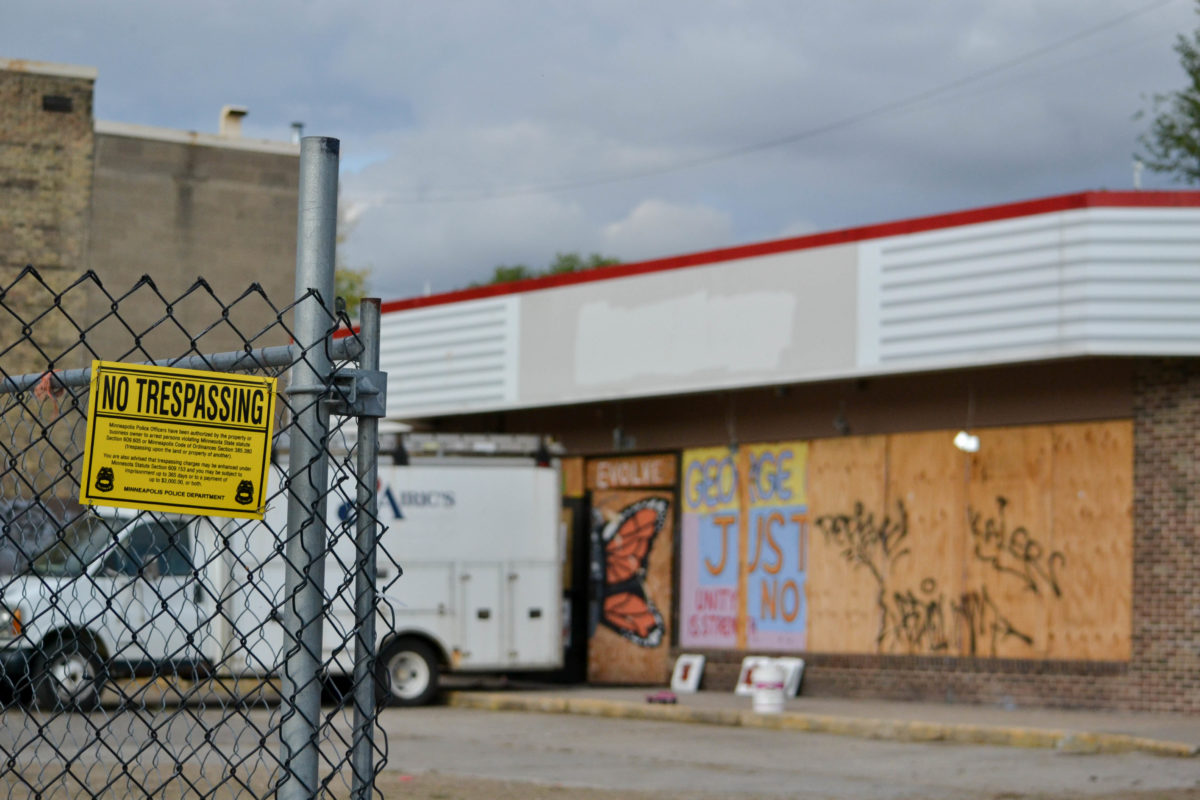Local activists and community members fought for housing solutions for their neighbors after officials cleared one of the city’s oldest and largest homeless encampments in August.
Over 100 people lived in the encampment on a strip of land along Highway 55 behind East Phillips Park, known as the Wall of Forgotten Natives, before the Minnesota Department of Transportation (MnDOT) cleared out the encampment on Aug. 24 with the Minnesota State Patrol officers.
MnDOT said safety concerns prompted the clearing of the Wall. The day MnDOT served the 24-hour eviction notice to the encampment, a resident of the Wall died of unknown causes.
“Highway right-of-way is not a safe place for human beings to live,” MnDOT said in an email statement to the Minnesota Daily. “MnDOT offered secure storage options for people’s personal belongings and provided contact information for local organizations that offer support services.”
While the land the encampment sat on is owned by MnDOT, many activists argued the land was stolen from Indigenous people. Signs supporting people experiencing homelessness near the encampment read “end encampment evictions now” and “never homeless before 1492.”
A month later, the land where tents and people once stood is now surrounded by chain-link fencing and concrete barriers. Graffiti and stickers linger on walls and nearby signs are some of the few things that are still around.
The Sanctuary Supply Depot is an organization that distributes survival supplies to those experiencing homelessness. Naomi Wilson, a volunteer for the Depot, said more sustainable solutions like affordable housing are needed to end homelessness rather than homeless encampment clearings.
Clearing out homeless encampments only leads to unhoused people losing their possessions and creating new encampments elsewhere, according to Wilson. Without enough shelter space or affordable housing, the issue will continue to hurt people.
“There are a lot of activists and residents in South Minneapolis pushing for more sustainable solutions for our unhoused neighbors,” Wilson said.
The city awarded a $1 million grant to build “tiny houses” to offer unhoused people safe and humane shelter on Sept. 21 in Avivo Villages in South Minneapolis.
This is the second iteration of the Wall of Forgotten Natives. The encampment was formed in 2018 and quickly became one of the largest in the city before being cleared out the following year. After several attempts to reestablish the camp, the Wall returned five years later.
Nicole Mason, a local advocate for unhoused residents, said in a press conference before officials cleared the mostly Indigenous encampment that some people experiencing homelessness prefer living in encampments rather than in a shelter away from their community.
“Shelters force people to give up freedoms and to be away from their community, a tactic used by colonizers to control Indigenous communities,” Mason said.
Advocates handed out food, water, blankets and other necessities to the unhoused before and after the encampment’s removal.
Involve MN is a local nonprofit that helped provide meals to the food insecure at the Wall before and after it was cleared out. Grant Snyder, vice president of operations and outreach for Involve MN, said taking care of the unhoused should always be a priority for advocates and officials.
“We have to provide services to people,” Snyder said. “People need to have dry clothes. People need to have a place to sleep and need to be warm at night. We have to do our best to make sure that they are going to survive.”
Snyder added that while the city has work to do when it comes to homelessness, it does not try to stop them from helping the unhoused, which is not the case in many cities.
“I feel very grateful that at least the city seems like its heart is in the right place,” Snyder said. “I may not always agree with their priorities and how they try to figure out how best to deal with this exploding problem of homelessness, but they’re not standing in our way.”
While the city itself was not involved in the Wall’s clearing, Mayor Jacob Frey has faced criticisms on his homelessness response after promising to end homelessness in 2018 when he first ran for mayor.
Mason said in a press conference that residents are not getting the help they need. Advocates like Mason argue the city needs to help people experiencing homelessness get off the street by providing more affordable housing.
“We are tired of our neighbors being pushed around when they need care,” Mason said.








